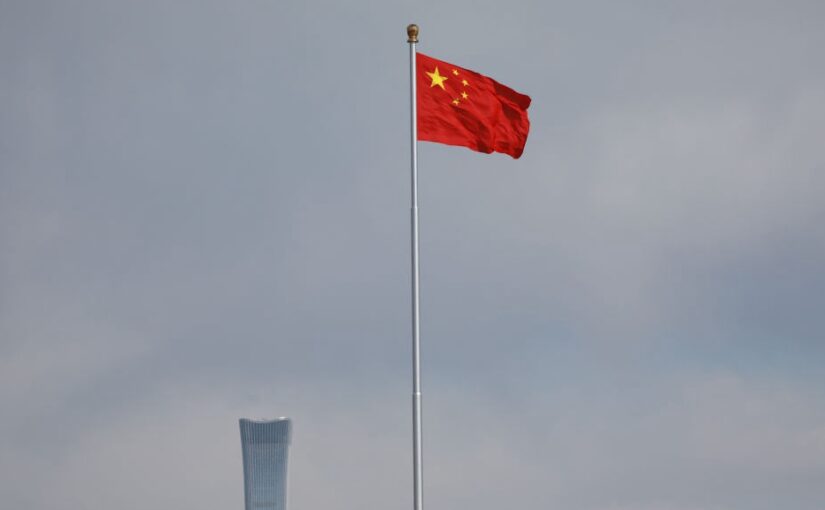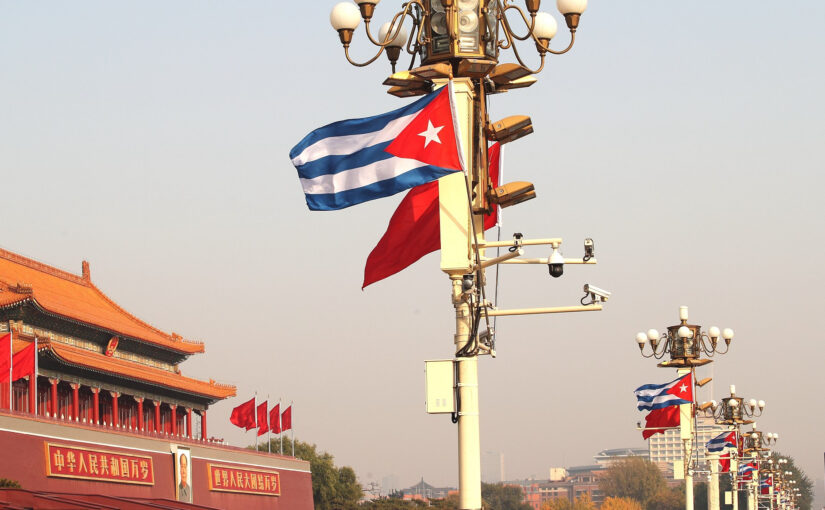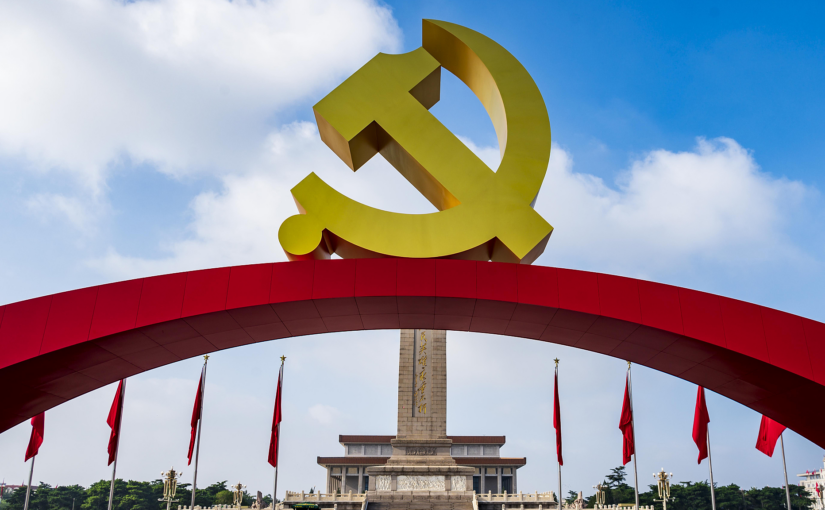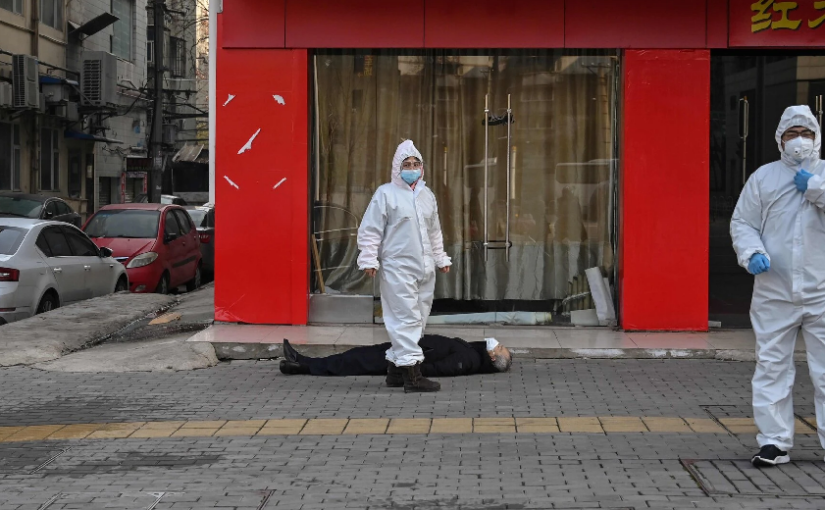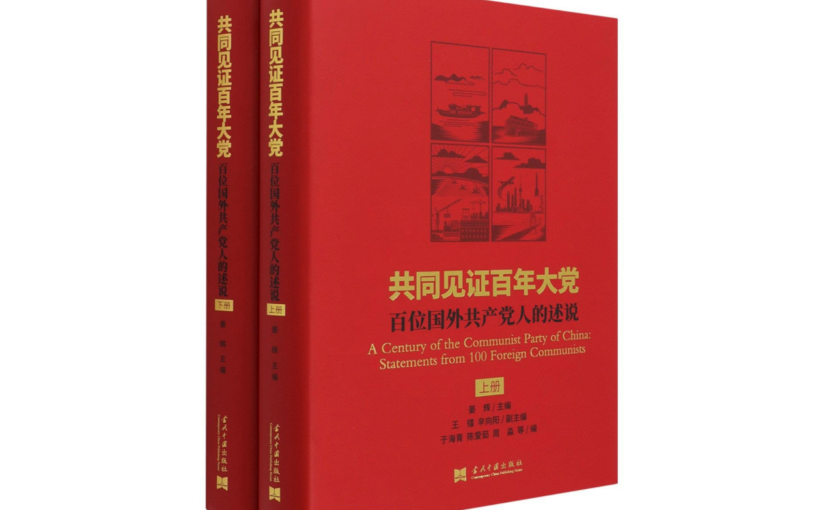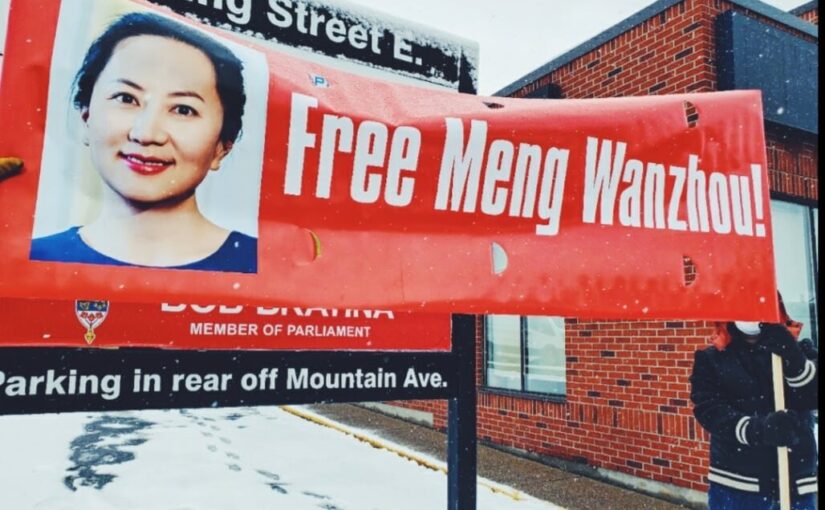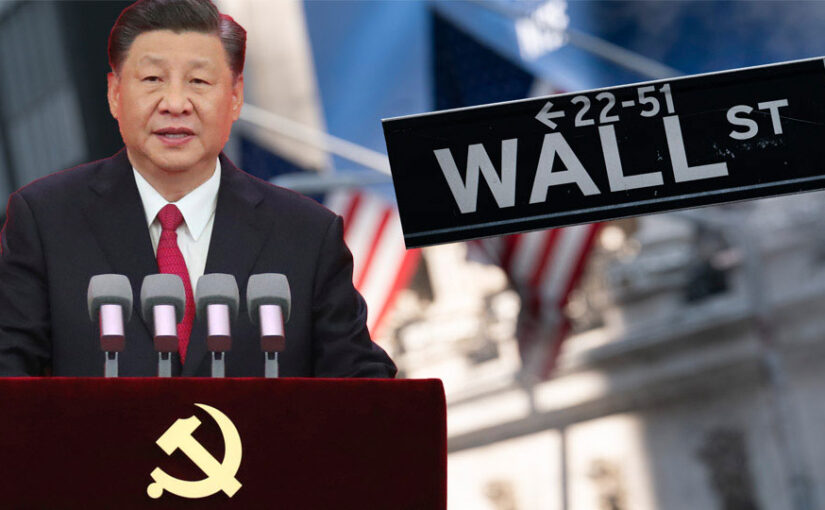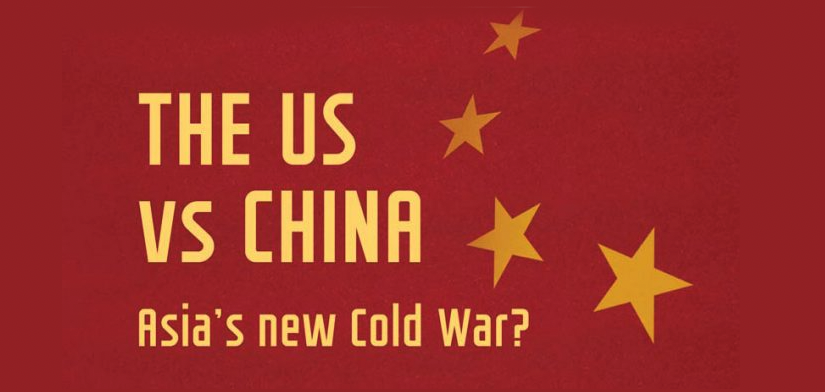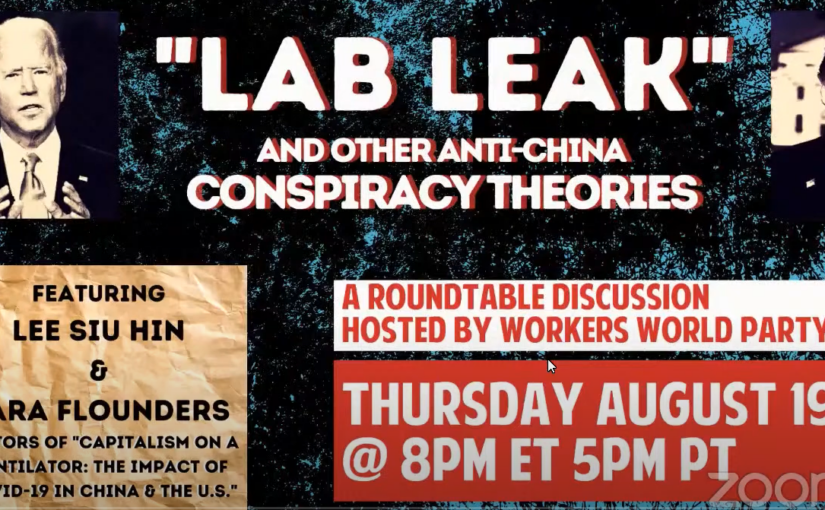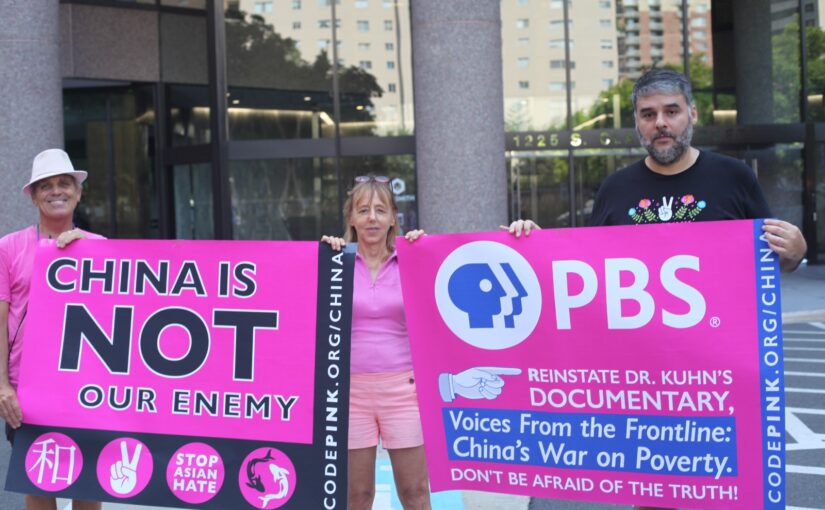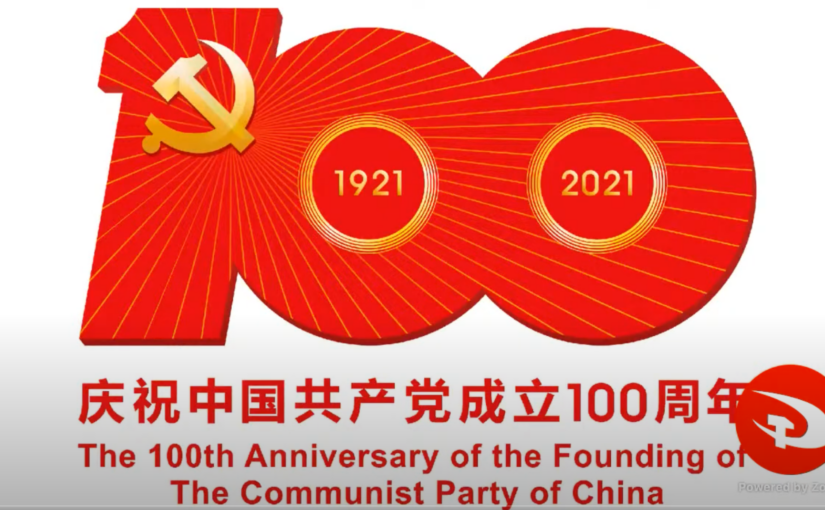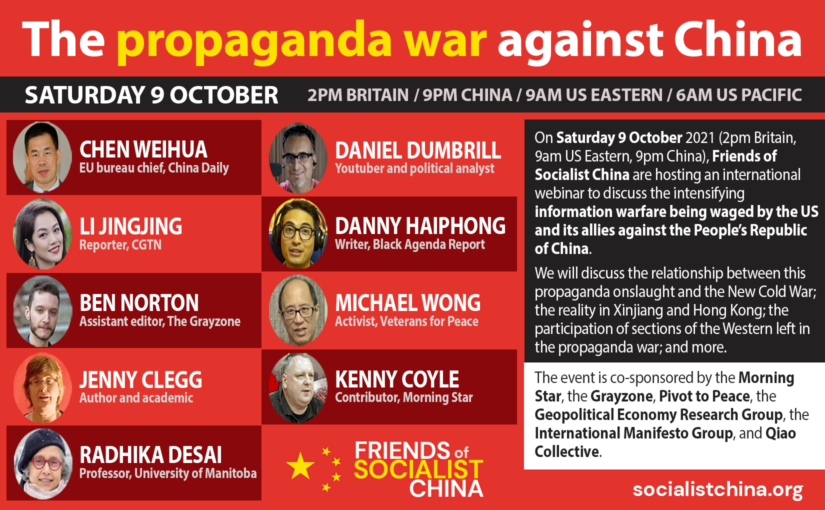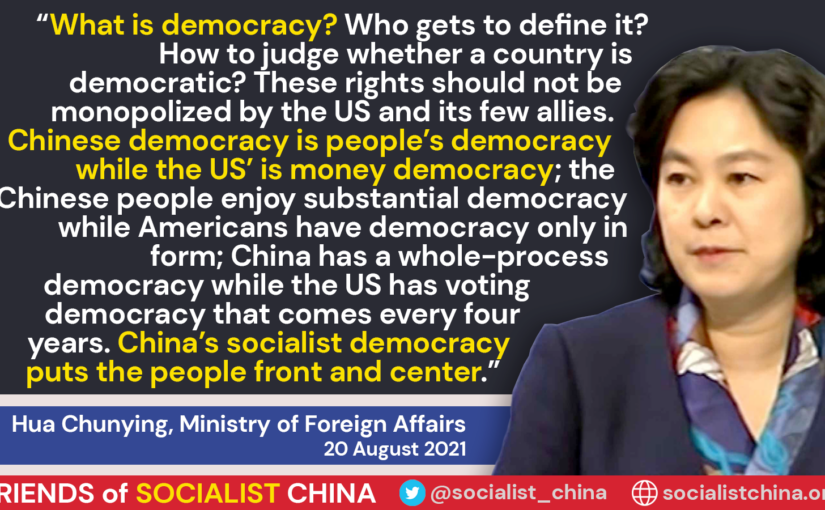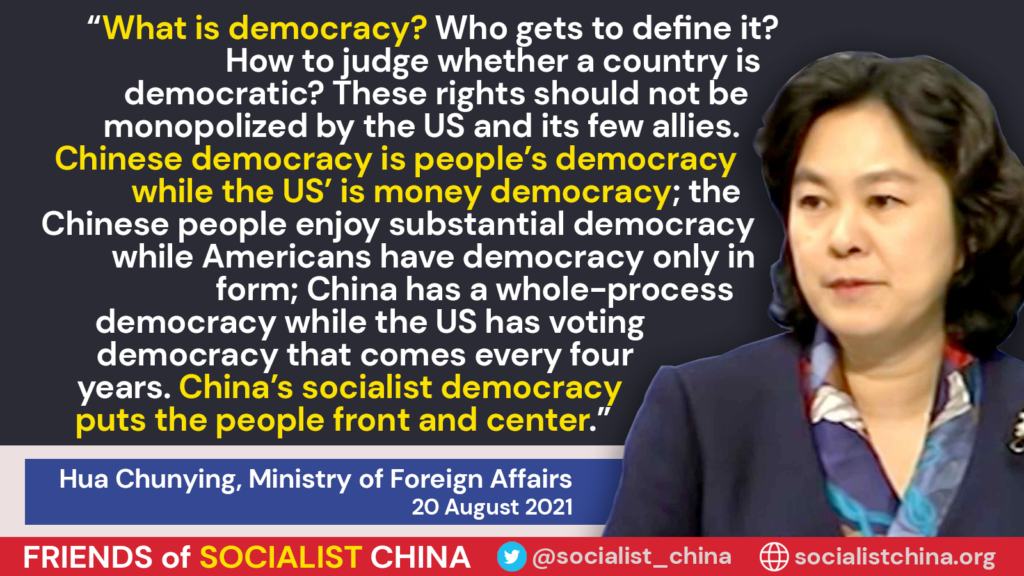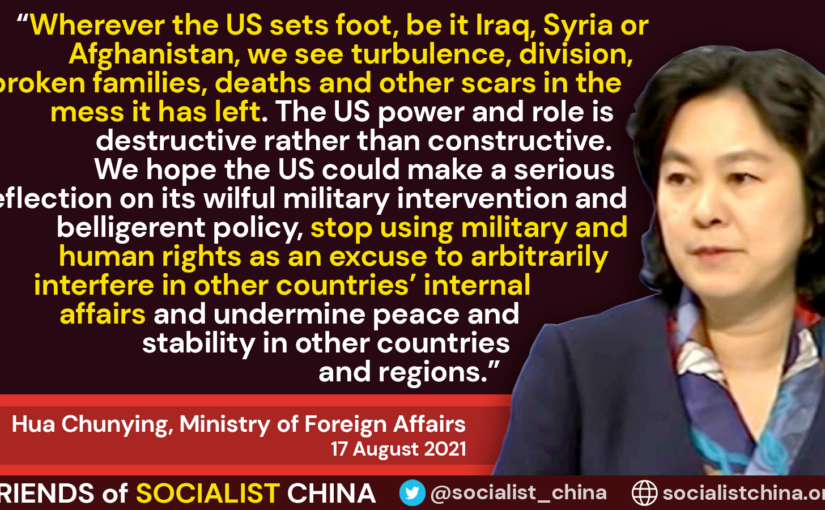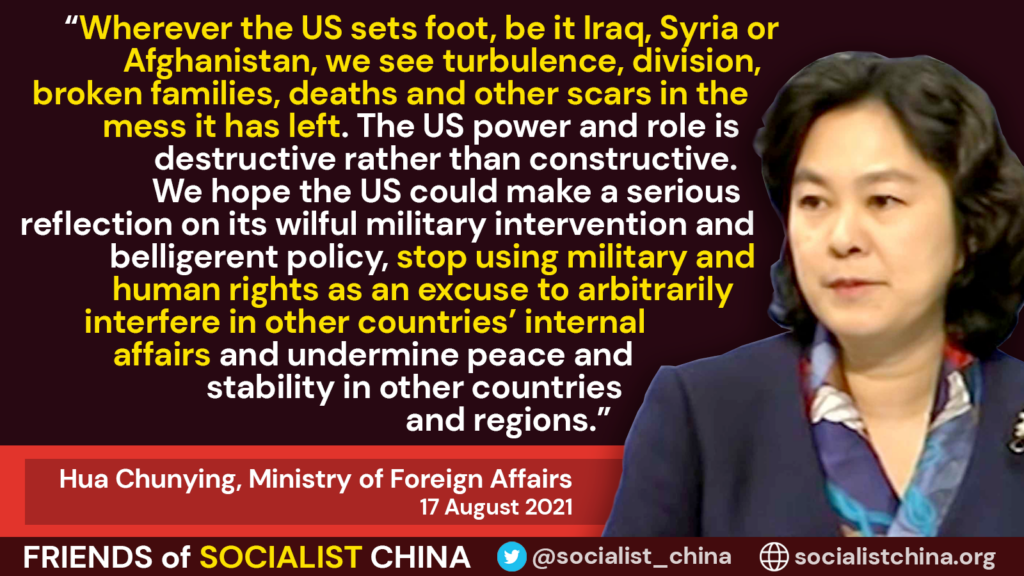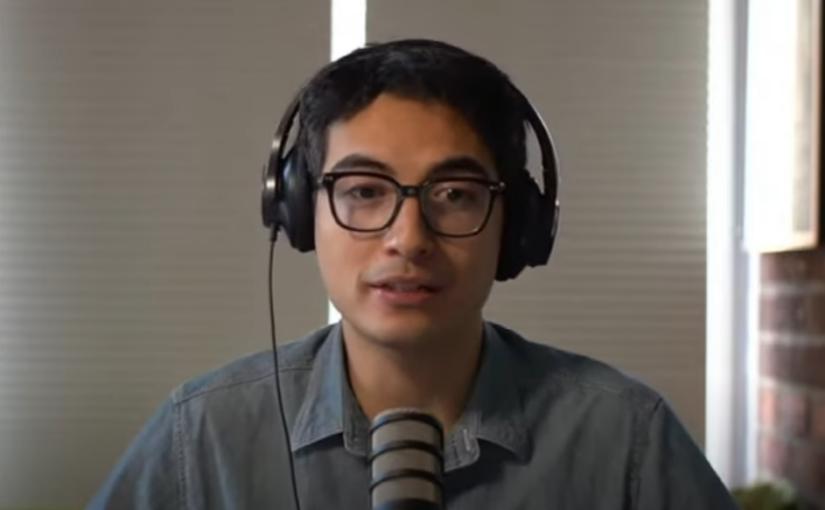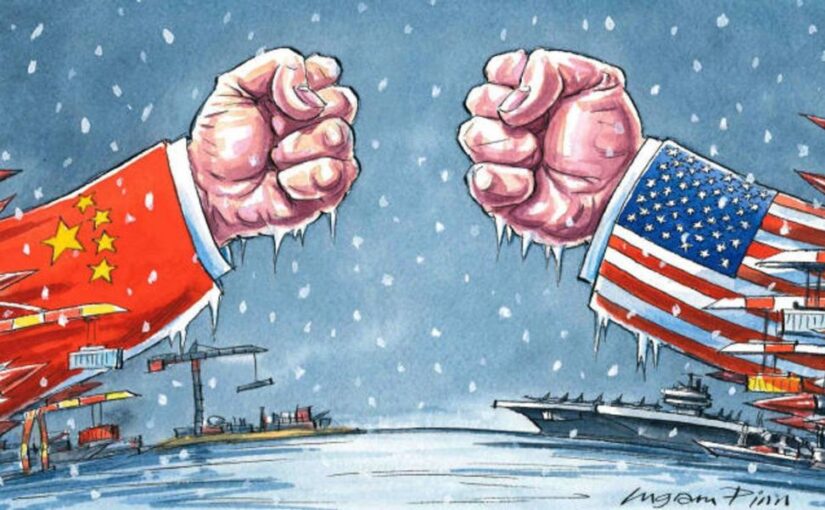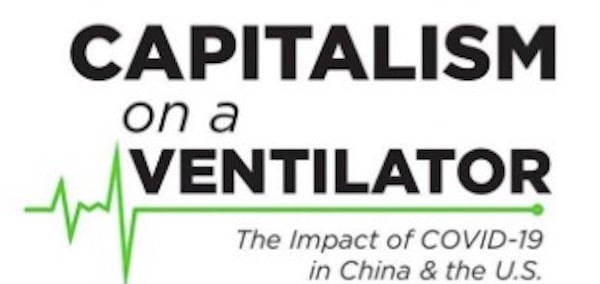We are republishing this valuable interview of Jude Woodward about her book ‘The US vs China: Asia’s new Cold War?’ The book provides a timely, thorough and accessible path to understanding the US-China confrontation. It has only become more relevant since its publication in 2017.
The interview was conducted in 2019 by the Workers Party of Belgium and can be read in that organisation’s journal Solidaire in French and Dutch. The English translation was first published in Socialist Action on 26 August 2021.
The United States and China are engaged in a fierce trade war. Could this ultimately lead to an armed conflict between the two great powers? One thing is certain in any case: relations between China and the United States will dominate international politics for decades to come.
What drives China, and what are the US goals? China is often presented as a great emerging expansionist power that wants to break the hegemony of the United States. However, this picture is at the very least one-sided and too simple. These issues were recently the subject of a book, “The US vs China – Asia’s new Cold War?” Solidarity spoke with its author, Jude Woodward.
Where did you get the idea for this book?
Jude Woodward. As a teacher, I spent much time in China. There, I was struck by the totally different outlook on the tensions between China and the United States. So I found it useful to write this book.
You are critical of the way the Western press presents China. Why?
Jude Woodward. The Western press portrays China as an aggressive emerging power that wants to take over the world, even though there is no evidence of it. China is very clear on its objectives: by 2049, the year of the 100th anniversary of the Chinese Revolution, it wants to become a “moderately developed” country, like Portugal or Greece. Today, China’s GNP per capita is about one-fifth that of the United States. The country has already been able to drastically reduce poverty, but it still remains relatively poor. And it will last a long time before that changes. This is why China is above all focused on its internal development, not on world domination.
In the introduction to your book, you explain that China and the United States have two totally different views of the world order. What makes them different?
Jude Woodward. The United States sees itself as the guardian of a stable world order, and the only one that can guarantee that stability. It is therefore crucial for the United States to remain the greatest power in the world. However, through its size and economic growth, China may eventually become as strong or even stronger than the United States. This obviously threatens American hegemony. In China’s vision, there should not be a single great power that determines what happens in the world, but a multipolar world order in which countries, powerful and less powerful, decide together. China does not accept that the United States is the only power in the world. Which is not the same as: China wants to become the only other great world power.
The United States fears the rise of China. You explain that it started under Obama, who launched the “pivot to Asia” strategy in his foreign policy.
Jude Woodward. In 2008, all Western countries were plunged into crisis, not China. In the years after the crisis, China grew much faster than Western countries. Obama realized that if he did nothing in the short term to stop China, it would be too late. One of the major initiatives that Obama has taken in this regard is the negotiation of the Trans Pacific Partnership (TPP) agreement with Asian countries. Only China was not involved. He wanted to link China’s neighboring countries to the United States.
Trump has withdrawn from the TPP. Did he not play China’s game in this way?
Jude Woodward. Inside the United States, there was already much opposition to the TPP. Some felt that Obama was making too many concessions to partner countries. Hillary Clinton had also said that she would cancel this treaty if she was elected president. The withdrawal from the treaty was certainly not intended to help China, although it certainly took a lot of pressure off that country. Trump’s approach is one-sided: he wants to counter China, and all other countries must follow him down that road. But he doesn’t try to convince other countries, nor does he offer them any advantages. This is a big difference from Obama’s approach. The similarity between them is their desire to stop China’s advance. So this is not unique to Trump, there is a consensus across the entire American establishment about it. However, this same establishment dreads Trump’s actions. The criticism is no longer so much about his attitude towards China, but about the way he treats the allies of the United States. For example, his decision to withdraw from the Paris climate agreement has not been appreciated at all.
Is Trump’s Approach to Stop China Successful?
Jude Woodward. A fundamental element of its policy is the introduction of tariffs on Chinese products. But ultimately these taxes fall on the backs of American consumers. If you put tariffs on washing machines made in China, of course, that raises their price. The danger for Trump is that it will lower his popularity. But he announced his decision with so much boast that he can hardly reverse it. There is considerable turnover in the White House, but the people who stay there are hardliners who continue to want these tariffs in place. And they most likely will get it.
From a trade war to a real war?
The caption of your book is “The New Cold War?” “. Why?
Jude Woodward. First of all, I would like to say that this is a cold war because there is currently no hot war (laughs). But there are also a lot of similarities to the Cold War. The United States has greatly increased its military presence around China. They are also trying to convince several neighbouring countries of China to choose sides and come into conflict with China, for example over territories south of the China Sea. They try to isolate China internationally, they impose tariffs on Chinese products, they carry out constant propaganda against China in the media by accusations of espionage, hacking, cyber warfare, all without much. evidence. Isolate China, make it a pariah state, exert military pressure, exclude the country from world trade… These are all tactics that were used during the Cold War against the Soviet Union.
After all, is the current situation not entirely comparable with that of the Cold War?
Jude Woodward. Effectively. China is much stronger today than the Soviet Union in its day. China is strongly integrated into the world trade and economy. The Soviet Union was more self-centred and traded almost exclusively within Comecon. It is much more difficult for the United States to pit countries against China today than it was in the days of the Soviet Union. For many countries, China is an important trading partner. And they won’t easily give up on that.
You explain that between the United States and China, the confrontation is already taking place on all fronts. Can this lead to a real war?
Jude Woodward. There is certainly a group within the US military that is convinced that there will be war with China. The American general who was in charge of American troops in Europe declared that war between China and the United States was inevitable in the next fifteen years. We also know that the new US defence strategy, announced early last year, no longer prioritises military spending on war on terror – the war on terrorism – but on confrontation with China. The United States is certainly thinking about a war with China and how it can win it. But whether this war will actually take place is another question. A real war would be extremely devastating, both for the United States and for China. So that’s not the most likely prospect, but you never know. The war will sometimes be colder or hotter, but the risk of a real war does exist.
China’s success story continues. Why has China become essential? What are the greatest domestic achievements?
Jude Woodward. The most important factor is of course the role of the state in the economy. It invests heavily in railways, high speed trains, housing, … These investments are, along with state enterprises, the most important factors in China’s economic success. Whenever the economy seems to be doing worse, the government steps in to stimulate it through investment. What Western countries never do. They under-invest, rely on the private sector, but if the private sector fails, nothing happens. This is not the way to stimulate growth at times when things are not doing so well. But in order to do that, you have to have state-owned enterprises. China has control over its banks, which the West does not, because it is ideologically opposed.
The United States wants China to pursue a neoliberal policy as well.
Jude Woodward. Absolutely. And in fact, it’s quite ironic. The whole theory is that you have to have a neoliberal economic policy because, it is said, state intervention does not work. We must let the invisible hand of the market do. Since the West is so convinced that a state-run economy cannot work, we are told every two years in the press that the Chinese economy is heading for a crisis. Not so much because it is, but just because, theoretically, under neoliberalism, this is how it should be.
Are Western Politics Pushing Russia Into China’s Arms?
Jude Woodward. It certainly has been. For example, the conflict in Ukraine was fueled by the intervention of the West. Western economic sanctions are pushing Russia into China’s arms. Some poke fun at Trump, but his policy towards Russia enjoys strong support within part of the establishment. Trump is trying to draw Russia to the side of the United States to have a stronger position against China. But, given the complex situation in the Middle East, Iran, and Central Asia, the majority of the establishment does not support collaboration with Russia.
What is the role of the countries located in the South China Sea, such as Japan, the Philippines, Vietnam?
Jude Woodward. Japan is the United States’ greatest ally in Asia. The United States has encouraged Japan to rearm, develop its military capabilities and put pressure on China. But even Japan does not want to directly enter into conflict with China. Trade relations with China are too important for that. Asian countries do not want war at their doorstep. They also see what it has given to the Middle East: destabilization, incredible chaos and all the problems that come with it. So it is very difficult for the United States to convince them to go to confrontation with China. China is not a threat to them either. This is not the perception of Asian countries, despite all the Western media claims about an expansionist and aggressive China. On the other hand, they don’t want to break with the United States either, so they try to position themselves somewhere in the center.
One of the criticisms of China is that it also makes deals with reactionary regimes. What do you think ?
Jude Woodward. China sticks very strictly to its principle of non-intervention. This does not mean that it supports reactionary regimes. For China, regimes cannot be changed through external military interventions. This is something that the people of the country concerned must deliver for themselves. What China is doing is giving very specific support to what it calls progressive regimes. For example, it supported Venezuela and it has good relations with Cuba.
The New Silk Road
The Chinese government wants to connect the Eurasian countries with a new big project called “Belt and Road Initiative” or the new Silk Road. The new Silk Road consists of a road, rail, maritime network … It is one of the largest infrastructure projects ever. At least 68 countries are affected, which account for around 65% of the world’s population. Jude Woodward: “It’s first and foremost an economic project, but of course there is also a political aspect to it. The new Silk Road will link Europe to China. EU countries therefore have every interest in staying out of the conflict between the United States and China. “
The English edition of The US vs China: Asia’s new Cold War? is published by Manchester University Press.

